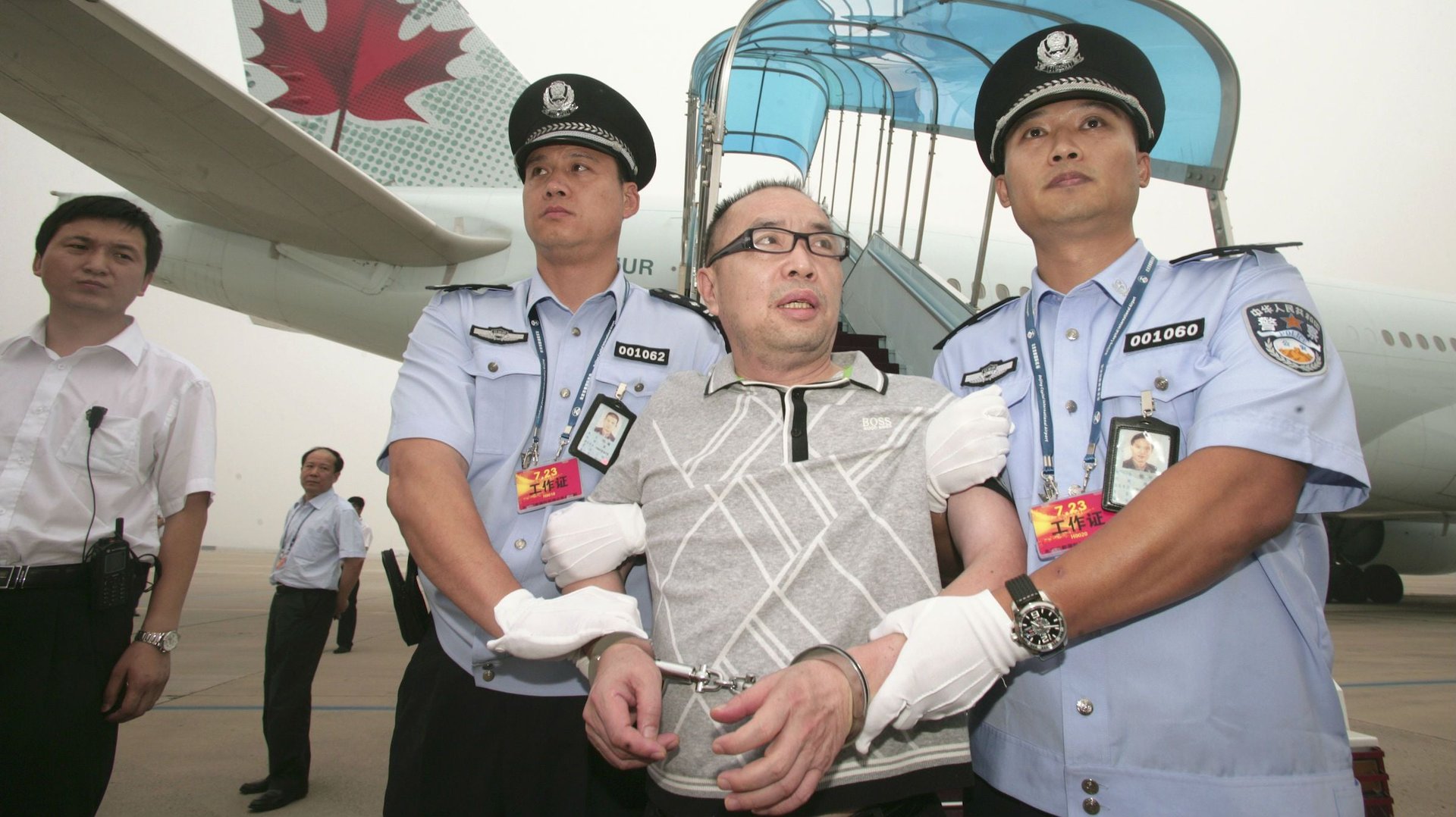China’s economic fugitives can’t go home again
New documents and recordings of months of negotiations between one of China’s most wanted economic fugitives and government officials show that the path to redemption, through the Chinese legal system, remains closed off for most criminals.


New documents and recordings of months of negotiations between one of China’s most wanted economic fugitives and government officials show that the path to redemption, through the Chinese legal system, remains closed off for most criminals.
Li Dongzhe, a businessman accused of embezzling $113 million, lived a life of painful isolation, guilt (his relatives in China were being detained because of their connection with him) and tasteless Western food in Vancouver where he fled to in 2004, according to documents reviewed by the Wall Street Journal (paywall).
Li eventually went to the Chinese consulate in 2011, hoping to strike a deal with officials. He reasoned that he could be used as an example ”to encourage more criminal suspects who are staying abroad to return voluntarily to China,” he wrote in a five-page proposal. “It will also reflect well on the Chinese government for being generous and for making an effort to improve its human rights record,” he wrote.
But that’s not what happened. Promises of “leniency” and protection of his family members, as well as a friendly photo of Li with Consulate officials to commemorate their deal were soon forgotten after Li returned to China. (At one point during talks, Li broke down crying out of remorse and gratitude to the consulate officials for not ”treating me as a criminal.”)
Li’s relatives and associates were rounded up and detained. His brother, who also returned from Canada under similar promises, was given 25 years in prison. Late last year, Li was charged with life in prison. There was no mention of his talks with the consulate in Vancouver in the court decision. Douglas Cannon, a lawyer who represented Li and his brother, told the Journal, “My clients took a chance and lost.”
It’s not an encouraging sign for other fugitives, or for advocates of a less harsh legal system in general. China’s “Operation Fox Hunt,” to catch economic criminals who have fled abroad, has struggled because of a lack of extradition treaties with countries wary of sending people back to China where punishment for financial crime is severe. Canadian officials did not send Li back for fear he would be tortured or sentenced to death, as other white collar criminals have.
The operation is continuing nonetheless. So far, China has caught some 300 Chinese citizens in 56 countries for financial crimes, including its first extradition case in Europe, in which a woman accused of embezzling over $200,000, was hiding in Bologna, Italy. There will be no warm welcome awaiting back home.